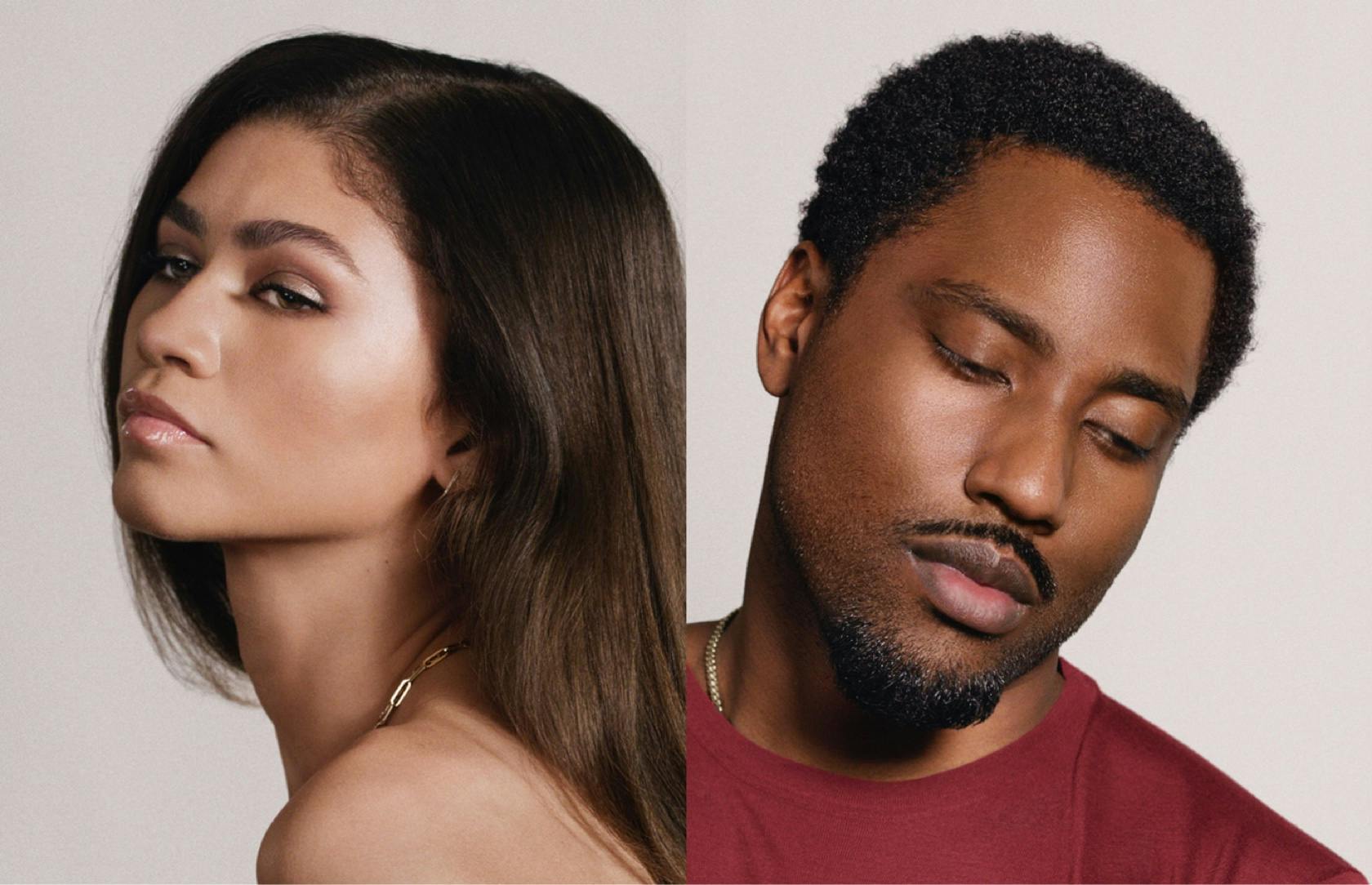Slave Play writer Jeremy O. Harris sees theater in Sam Levinson’s Malcolm & Marie, starring Zendaya and John David Washington.
When I was reading the script for Malcolm & Marie for the very first time, I was annoyed. Pissed off. This was when I was in a period of quarantine, in which I couldn’t conceive of anything to write; there were no ideas that felt tangible enough to put on a piece of paper. I wondered, What the fuck? Why did this come out of Sam Levinson and not me? It speaks to a quality that I’ve seen in Sam for the decade or more that we’ve been friends: He’s one the best listeners I know. He remembers conversations we had when I was 22 and brings them up in conversation at my 31st birthday party. I see echoes of moments we’ve shared together in Malcolm & Marie.
When the film opens, it’s the biggest night of Malcolm’s life. He’s just premiered his latest film, a gripping portrait of a woman living through addiction and recovery, to a rapturous Hollywood reception. Caught up in the moment, he carelessly forgets to thank his partner, Marie, whose own past closely mirrors that of his fictional protagonist. By the time the two arrive back at the elegant Malibu compound where they are staying, the thoughtless slight has started them down an emotionally harrowing path. Over the span of an evening, the young lovers rage at one another as a series of painful revelations forces them toward a romantic reckoning.
It’s so amazing to see something that feels so complete, so significant. It’s part of a lineage of movies from the time when movie stars were movie stars. This film came together during the pandemic, on a limited set in Carmel, California, over the course of a month and a half. To take these two young titans, John David Washington and Zendaya, and bring them together as Malcolm and Marie is the kind of thing I want to applaud, because that belief and trust in your collaborators is so rare. I think that’s a testament to Sam as a filmmaker and to the space he’s created where one has the privilege to experiment. Watching what Zendaya, John David, and Sam built together as creatives, as producers, as artists, it’s so in line with theater. And as a theater-maker myself, it was an exhilarating journey to watch.
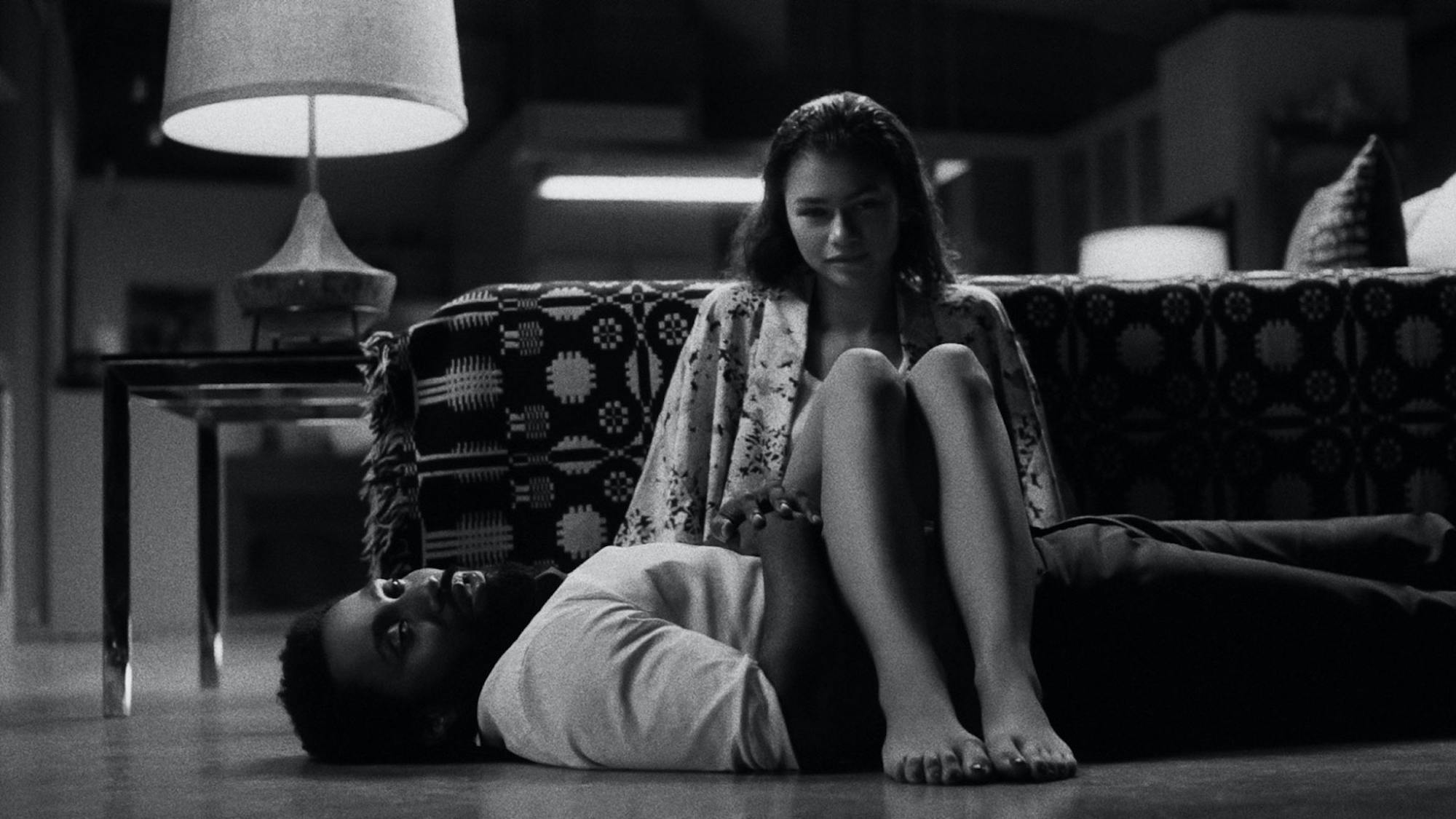
I spoke to Zendaya, John David, and Sam about their exceptional experience making Malcolm & Marie.
Jeremy O. Harris: This film is such an insane feat. Zendaya, Sam, leading up to this, you two were working on the TV series Euphoria. COVID happened. The set was closed. We were all quarantined in our houses wondering what to do. You guys decided to make Malcolm & Marie. How did that happen?
Sam Levinson: Z brought up the idea of making a movie. We knew it had to essentially be shot in one location because of COVID hazards. We knew that it shouldn’t be a big cast; it should be a two-hander, which then got me thinking about the movies that I really love that are two-handers — small, more intimate movies like Mike Nichols’s Who’s Afraid of Virginia Woolf?, Ingmar Bergman’s Scenes from a Marriage, and Joseph Losey’s The Servant. I also began thinking about where we are right now, at home in relationships, dealing with love and grievances and joys. At the same time, I needed something to kick it off. Here’s the truth: I forgot to thank Ash [Ashley Levinson], my wife and producing partner, at the premier of my film Assassination Nation. I felt very guilty about it. I took that as the catalyst for Malcolm & Marie to explore this relationship.
Zendaya: When he talked about stripping things back, possibly shooting it in black and white, and trying to create essentially a skeleton crew of our Euphoria people, it sounded amazing to me. The Euphoria crew is like my family. We were all out of work — nobody had the opportunity to work at that time. This project sounded incredible, while equally sounding very terrifying. I’ve never had the opportunity to be involved in something from its inception — literally, the opportunity to be involved in every single phone call. Sam calls, he reads his pages out loud, I listen, we talk for God knows how many hours about it. Then he does his thing, comes back, we talk about it some more.
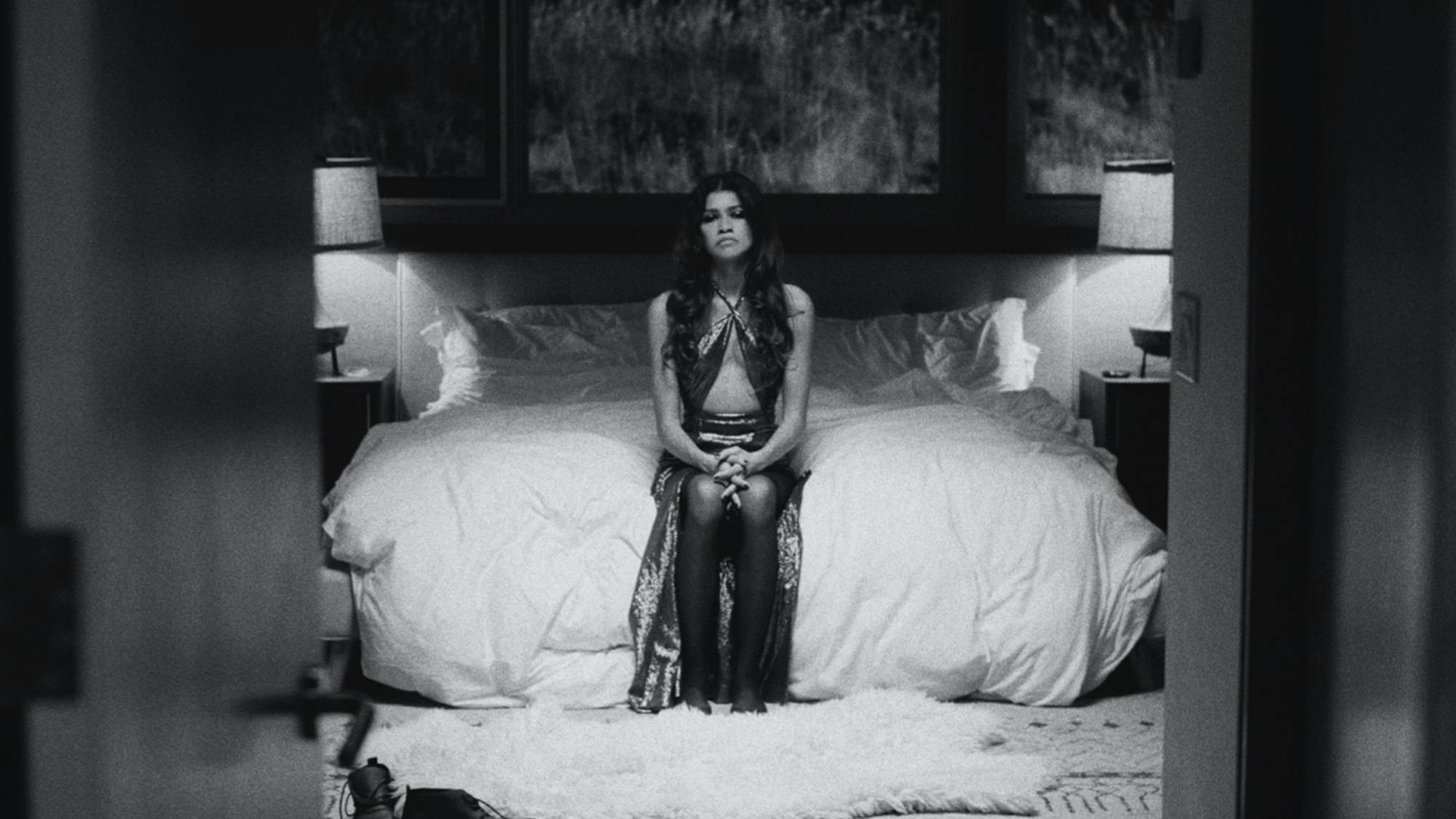
Everybody has a claim and an ownership in our film because they did the work.
Zendaya
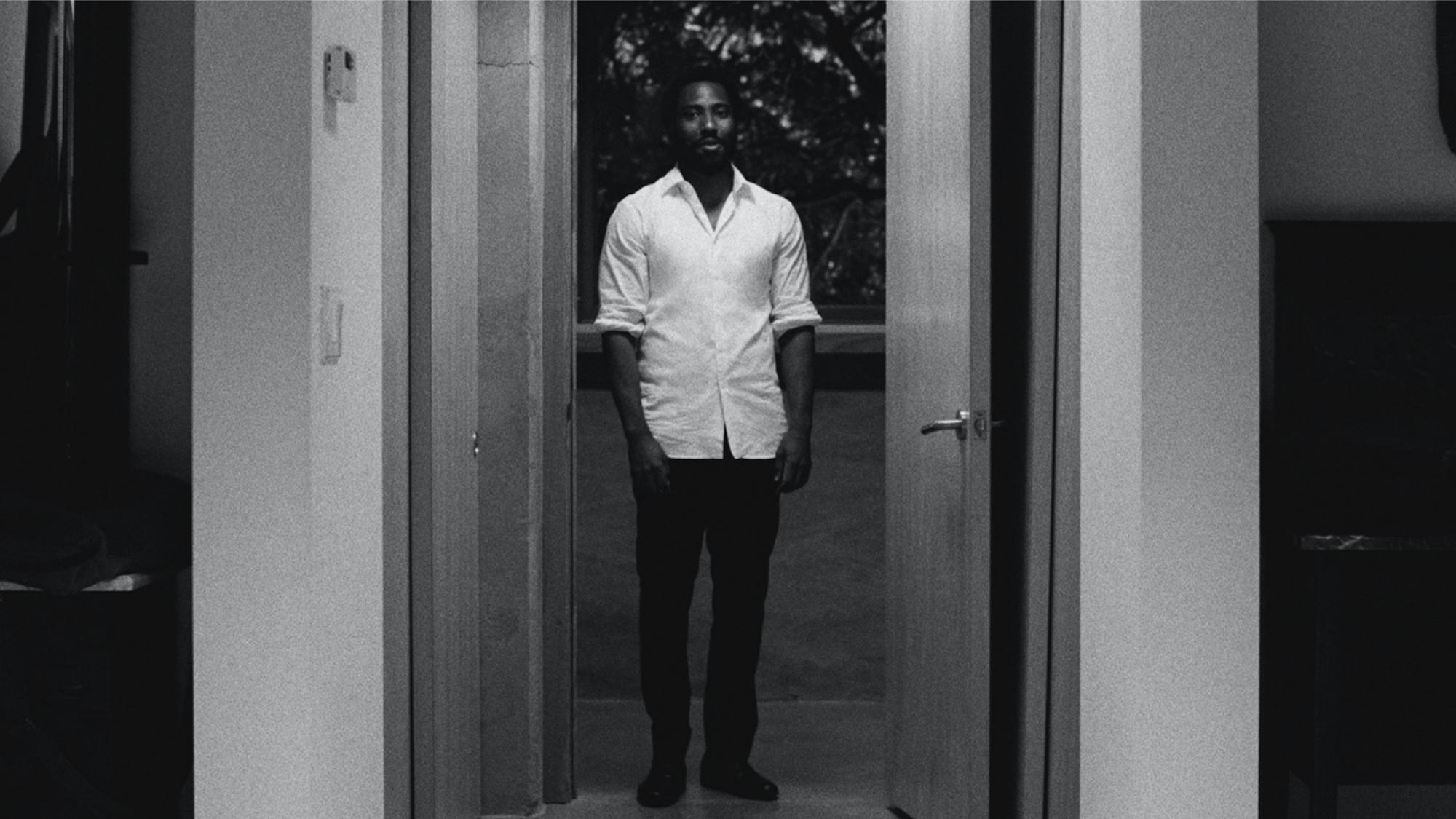
Levinson: Z was like, “Who’s playing Malcolm?” and I said, “The only person I can think of is John David Washington.” Now, I didn’t know John David Washington well, but I knew his sister, Katia Washington, who’s a producer. She’s also a producer on Malcolm & Marie. So I knew enough to cold call John David. I had the first 10 or 15 pages written, and I read it aloud to him. He was like, “This sounds great. I’m excited to see where it goes.” I knew then that I had to really fucking write this thing, because I was essentially asking John David to go from doing the biggest movie of the year with Tenet to doing the smallest movie of the year. I was a little nervous, but I knew that if we had a great crew — our Euphoria crew — and two unbelievably gifted actors — like Frazier and Ali, round-for-round, heavyweight titans — that we would be good.
Zendaya: When it came down to, O.K., he’s written enough to talk to J.D. about it, that was also nerve-racking. What if J.D. doesn’t like it? What if he doesn’t want to be involved? There are all these fears that come along with wanting to create something from scratch. Things might not work out, you can mess up, it can fail, it can fall apart — and I’m terrified of that. I don’t know if it’s just who I am as a person, if it’s the Virgo in me, but I’m absolutely terrified of not doing the absolute best I can do. I believed so much in this idea and in wanting to challenge myself not just as an actress, but as a businesswoman and as a creative, putting my own money into something and learning what it takes to put a production together. The fact that we were all able to have equity in the movie, that’s unheard of. It’s really deconstructing or recreating how films are financed and how films are made. Everybody has a claim and an ownership in our film because they did the work.
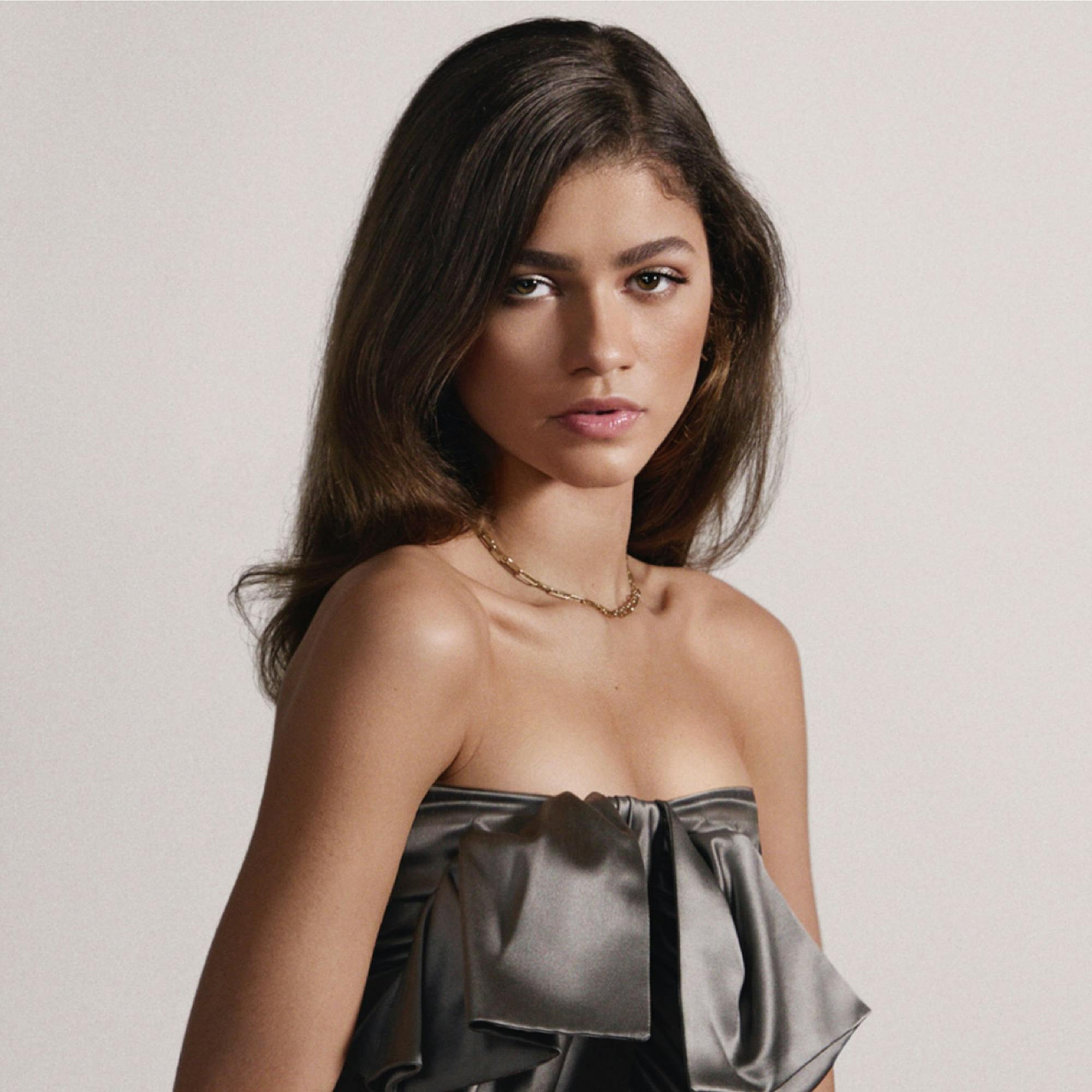
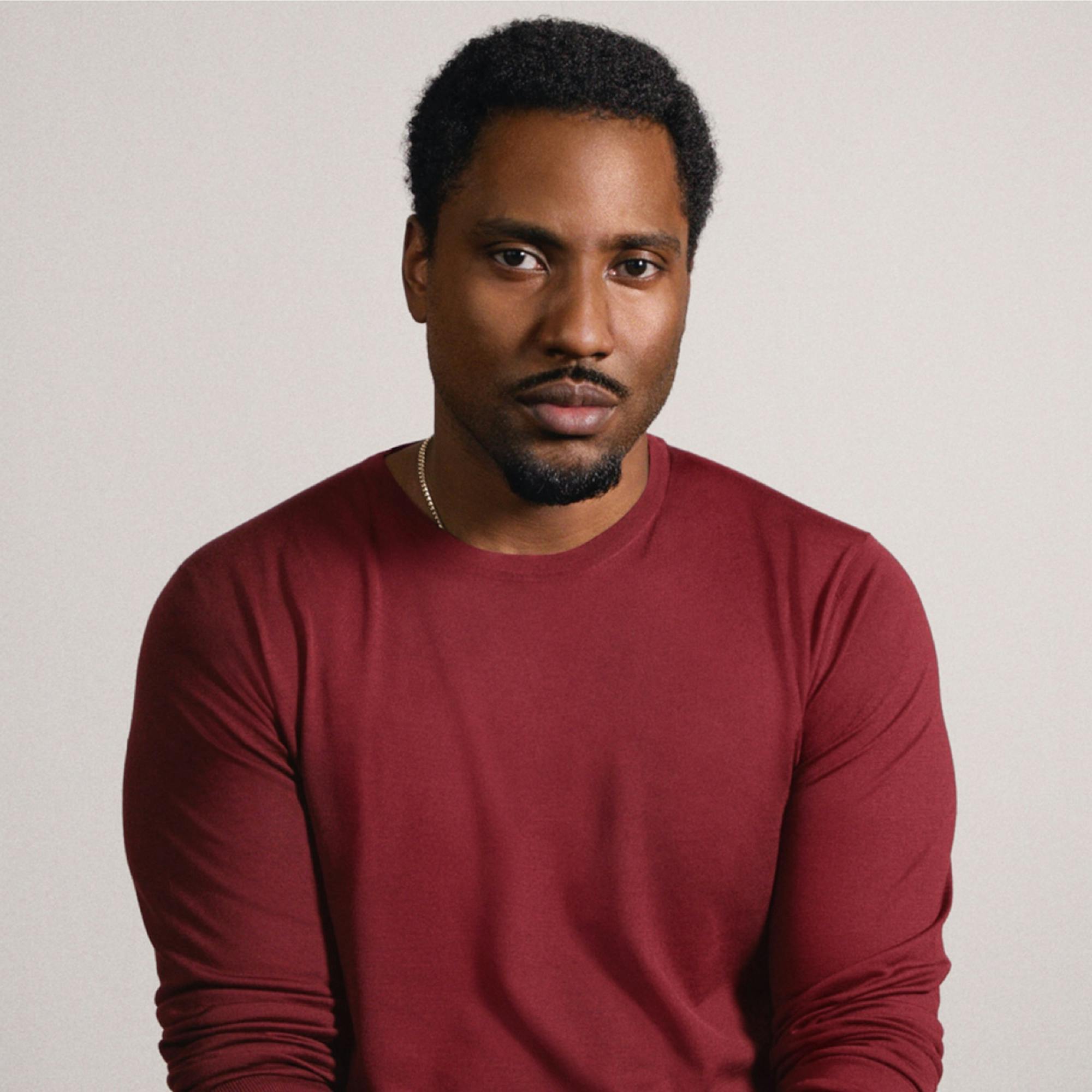
Harris: J.D., you didn’t have the familial relationship with Sam that Z has. What made you look at the script and say that after Tenet you wanted to do this?
Washington: It’s interesting. I was coming off of a project where the physicality of the character was what led me into the psyche, into his emotional beats — it wasn’t the words, necessarily. When I got the call from Sam, I couldn’t believe what I heard. It’s such a wonderful feeling to know that the words will guide you, the words are going to take you on the journey. I did my background work, I did my preparation and all the character study stuff, but really I didn’t have to force anything. The words led me. So many different things in my body and my spirit just woke up at the prospect of saying these words, getting these feelings out.
Harris: What was the day-to-day like? What did you guys do when you got to Carmel to begin filming?
Levinson: Katia and Ash, alongside a team of COVID specialists and doctors, designed an extraordinary protocol in which we all had separate housing units on this ranch, in this hotel that had been shut down because of the pandemic. No one was allowed to leave once they got there. We’d all get our prepackaged meals. There were no trips to the grocery store, nothing of the sort, because we needed to maintain the bubble.
Zendaya: J.D., Sam, and our cinematographer, Marcell Rév, who’s brilliant, all of us would be sitting there together literally reading through every word, every moment, trying things, talking through things, working on the material. It’s an actor’s dream. You never get to live in the material that long. You never get to workshop it or put it on its feet and block it out. It felt much like a stage performance, which is how I fell in love with acting. I grew up at the California Shakespeare Theater. That’s where my mom worked as a house manager. I grew up with my love for acting not coming from movies, but coming from the stage. And that’s what this reminded me of.
Harris: John David, how did you find the comedy, the humor, in Malcolm?
Washington: I was just trying to learn Sam’s language. I stumbled on some things, and I guess I found Malcolm’s voice through trial and error. The humor revealed itself. I had to trust the repetition of learning the lines and the language, and once I believed in what I was saying, whatever was natural just came out. I felt comfortable trying something and failing, and maybe in failure there would be a discovery we could actually use later.
Zendaya: There were moments when J.D. threw his own gems in there that none of us saw coming, and I’d have to stop myself from laughing or crying. It was brilliant work. I’m not good at improvising and throwing things out there and still catching the flow of what’s already there. That’s not my specialty. I can flow emotionally, but I can’t throw my sauce all over it like J.D. did. We’d get to cheer each other on as we were going.
Washington: We spent days before we started shooting getting to know each other, getting into the flow. The way Robert De Niro speaks Martin Scorsese’s words, or Sam Jackson speaks Quentin Tarantino’s words, that’s what I signed up for. But I felt so freakin’ comfortable trying things, occupying the space. Also, because this movie was shot during the pandemic, I hadn’t worked in a long time, and I wasn’t sure if I’d ever get to work in a studio capacity ever again. It was the first time in my career where I wasn’t sure of the way into the character. Then it just magically happened. I found it.
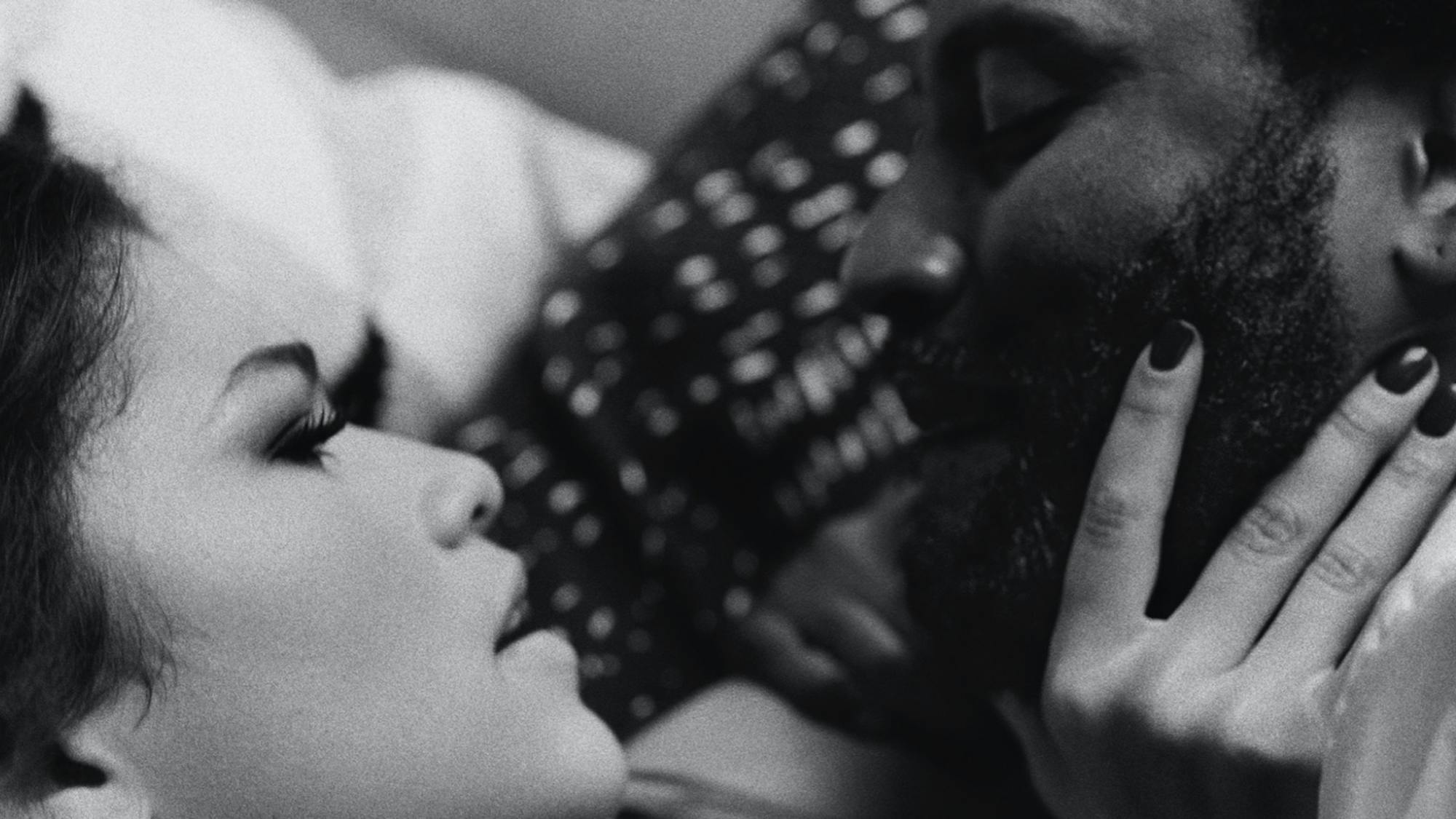
I found something very personal in Sam’s writing. It was so lived in.
John David Washington
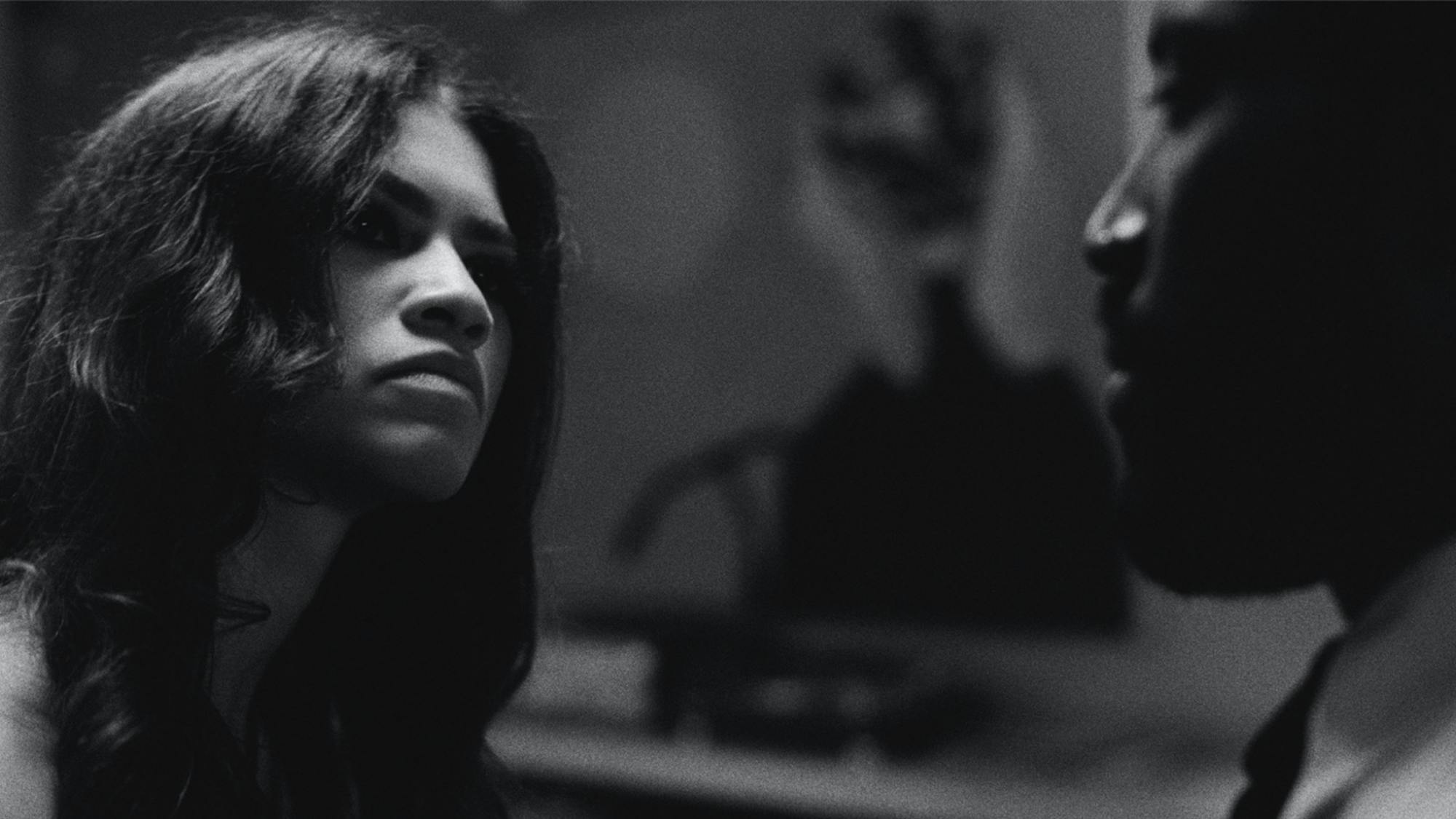
Harris: Z, you are stepping out of the realm of the teenager. Now you’re playing parts that are in line with a Brigitte Bardot or a Dorothy Dandridge in Carmen Jones.
Zendaya: I’ve played a teenager since I was a teenager, literally since I was 13 years old. Marie was one of the first parts where I’ve been able to obviously play a woman, be grown. That pushed me in a big way. So did having that creative partnership, having J.D. opposite me, and leveling up to match him in different ways. For instance, if his version of Malcolm’s attack is one way, then I have to figure out what my version of Marie’s is. Often, the solution was found in not saying anything at all, or in being very quiet with the way she presented her ideas, or maybe in antagonizing Malcolm and knowing he doesn’t really know what she’s planning. That was interesting to me, finding those dynamics. They have to build, they have to go up and down. It was about finding that unpredictable emotional rollercoaster between these two characters.
Washington: What’s that John Cassavetes film? Faces? I love the rants and the documentary style that film presents. I was thinking, Have I ever seen characters like this speak this way on this particular subject — on Hollywood, our relationship to the business, our relationship with the artistry? I found something very personal in Sam’s writing. It was so lived in. Yes, these are two fictitious characters, but this is a very real experience that was put on this page. The poetry in the way Malcolm expresses his love to Marie, I wish I could say that to somebody. I can exemplify it through actions, but to use your words in that way? That also dictated the pace and even what I was doing with the clothes. This guy walks around slow but speaks fast. With every layer of clothing coming off, a layer of vulnerability is being exposed. All of those things are in the text, so you don’t have to do much but listen to the text. Then when you work opposite someone as brilliant as Zendaya... She can do anything. I’m excited for people to see her performance. It brought things out of me that I wasn’t aware of.
Zendaya: It felt like round for round. He would do something and blow me away, and I was like, Well, fuck, Malcolm’s winning now. He’s winning the argument. The competitive side of me, the side that makes it very hard for me to be wrong, was like, I got something for your ass. But I think what’s so special about these two characters is the fact that they allow each other to speak. They allow each other to sit there and say everything they need to say. Though their relationship is toxic in a lot of ways, it shows how much they value each other’s words. It shows how much your partner affects everything that you do, how much impact they have in your work and in your life. We often say that this movie is about the responsibility we have to our partners. I was fascinated by the fact that Malcolm and Marie are able to be this fucking honest with each other.
